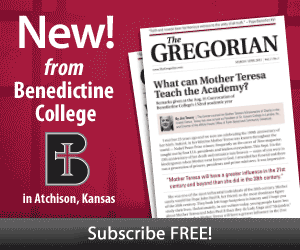World
Alan Wolfe and the Taming of Religion
![Alan Wolfe (left) and French President Nicolas Sarkozy. [Photo Credit: Grébert ]](../../images/uploads/Wolfe_Sarkozy_400.jpg)
Europeans routinely scratch their heads in puzzlement over the eagerness with which the American regime, unlike the modern French state (until Nicolas Sarkozy?), invites religion into the public square. How can the most progressive nation on earth have such a hankering for such a medieval mixing of Church and State?
In a recent interview with Newsweek, Alan Wolfe—one of the media’s most popular commentators on the meaning of America’s “culture wars”—argues that our puzzled friends across the water are actually getting things backwards. America’s embrace of public religion, Wolfe says, has nothing to do with reactionary nostalgia for Christendom. On the contrary, it reflects the success of what he takes to be a thoroughly modern (and, until now, distinctively American) “combination of secularism and religion.” Wolfe thus turns the conventional European reading of America on its head: It is aggressively secular France, not the United States, that is behind the times (at least on the Church-state issue), and Nicolas Sarkozy’s recent advocacy of public religion isn’t a reactionary retreat from modernity, but a progressive step towards it.
Taken simply as a description of how the American regime deals with the problem of religion and politics, Wolfe’s account of the uniquely American “combination of religion and secularism” is illuminating (if not absolutely original). The trouble, though, is that Wolfe doesn’t just describe, but also prescribes. And his prescription is one that is bound to be unacceptable to Catholics. Here’s why.
Although Wolfe appears to celebrate the “tolerance” with which (in his view) the American regime invites religious believers to participate in the public debate as believers, on Wolfe’s account this invitation comes with something of a catch (at least for Catholics). Religion, Wolfe says, is welcome to make speeches in the American town hall—only, like the gunslingers in the old westerns, it has to check its pistols (its creedal commitments) with the sheriff before entering the premises. Varying the metaphor, Wolfe’s American regime encourages religion to enter the public assembly—so long as it shows up clad in the garb of a “generic religiosity” that, as Wolfe himself insists, relativizes every specific theological truth claim. So if Wolfe is right, what he lauds as distinctively American “tolerance” really ends up being just a distinctively American method of ensuring the triumph of “true secularism” over the very idea of religious truth (as a force that has any public bite).
Logically speaking, then, Wolfe’s proposal boils down to something like this. Whereas the modern French state (at least until now) has aggressively pushed religion to the margins of public life, the American system has hit upon a gentler, but all the more effective, way of making religion safe for “liberal democratic values.” Instead of shutting believers out of the public conversation, we actively invite them in—with the proviso that they leave their substantive theological truth-commitments at the door (creeds, we assume, are potentially even more dangerous than guns). It’s not that believers can’t proclaim their deepest beliefs publicly; it’s that they can publicly recommend them only as convictions “based,” as Wolfe says, “upon voluntarism, upon an individual’s own choice”—which is to say, as essentially private options.
Instead of putting the believer on a reservation, then, the Wolfian “combination of secularism and religion” puts the reservation in the believer. Wolfe’s America turns out—quelle surprise—to be even subtler than (pre-Sarkozy) France in its handling of the Church. His America has no need to do anything so vulgar as écraser l’infame. Once the Church starts policing herself internally, the State can give her the run of the palace, because her inner cop will guarantee her strict adherence to palace protocol.
As I hinted earlier, I think that Wolfe’s account of religion and politics in America is a largely accurate description of how the Church-State relation actually does work in our country. The real problem lies in Wolfe’s prescription of what he calls “liberal democratic values” as the only legitimate rules of public discourse. It’s not that I object to political freedom—who in their right mind would? It’s that, when you follow out the logic of Wolfe’s prescription, it leads to a State-supported public orthodoxy about what it means to be free, an orthodoxy that says that we’re at our freest when we decide what shall count as truth (at least in religious matters). To be sure, I’m all in favor of people embracing the truth at their own speed and without coercion, but that’s not the same thing as telling us we each have a right to make up our own truth as we go along (and if Wolfe thinks there is no religious truth, then he’d better come up with a few good arguments before making his disbelief the basis of the Church-State relation). Anyone foolish enough to try to invent truth wouldn’t find freedom, but enslavement under the harshest master on earth: one’s own untutored self.
Let me be clear: I’m not suggesting, say, the adoption of “fundamentalism” as the alternative to Wolfian liberalism. Rather, I’m suggesting that it entirely misses the point to frame the issue of Church and state, as Wolfe does, in terms of an either-or between “liberal democratic values” and fundamentalism. Put positively: There is a Third Way, only it’s not yet another political system (dreamed up by who knows what utopian), but a (Catholic) Church, a Church whose gift to politics is a reconciliation of freedom and truth that transcends both fanaticism and relativism, Left and Right, and all the other either-ors that our culture’s binary thinking falsely supposes exhaust the available alternatives.
True Catholicism, in fact, is not about fanatical radicalism, but about the radical healing of all things—including both “liberal democratic values” and the American regime that is their most advanced and subtle incarnation.
ADRIAN WALKER is an editor of “Communio: International Catholic Review” He received his doctorate in philosophy at the Gregorian University in Rome, and was most recently assistant professor of Philosophy at the John Paul II Institute for Studies on Marriage and Family.
By AT 02.28.08 09:19PM Not Rated
I think that perhaps Wolfe’s position on religion and government in America is a more honest approach to the “melting pot” of cultures and religions of our country; and I think his argument is Catholic in its attempts to include and respect the value of various cultural influences and background, and to affirm the existence and identity of all Americans, whether black, white, muslim, jew, christian or secular etc.
One cannot forget the problem of identity; disparagement of an individual’s experience and culture on a basis of prejudice or fear is entirely unproductive and damaging to the authenticity of religious belief and practice, especially to that of the one who disparages. I think “Liberal democratic values” are worth defending and this is why: as in all attempts to connect diverse humans to others not like themselves, there is stumbling, there is idealism, there is cynicism, but hope allows for this arduous journey, for the heart to move toward the hearts of others, for openness to bring the individual peace and love that will eventually, miraculously overflow to our society as a whole.









By Marty AT 02.27.08 12:41AM Not Rated
Very good piece.